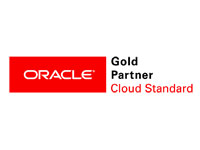Blog
Monthly Planning & Budgeting Cloud Update - May 2018
Oracle updates all Planning & Budgeting Cloud environments (PBCS/EPBCS) monthly to address defects and introduce new features. These updates are delivered automatically on specific dates scheduled by Oracle, during the mandatory daily maintenance window. Keep in mind that while you can configure your daily maintenance window time, you can't change the dates these updates are applied. Oracle announces next month's update dates via newsletter at the end of each month.
April 2018 updates are currently scheduled to be deployed in test environments on Friday, May 4th and to production environments on Friday, May 18th , starting at 10 p.m. UTC. Any schedule changes are also announced via the newsletter, which is automatically sent to all cloud administrators (keep an eye out for Oracle emails with Enterprise Performance Management Cloud Services in the subject).
These are the highlights of the May 2018 Planning & Budgeting Cloud update:
- A new version of EPM Automate is available with this update with a new command: runDailyMaintenance . This allows Service Administrators to run the daily service maintenance process as needed , as opposed to having to change the schedule from the Daily Maintenance window. Keeping your EPM Automate version up to date is important ; not only to receive the latest enhancements but to avoid potential issues with your existing automation scripts (we've seen scripts that have stopped working for using too old of a version). Updating EPM Automate is a manual but easy process: you must manually download and re-install it as you did in the original setup.
- The Activity Report is one of my favorite Planning cloud features. It is automatically generated every day, chock-full of charts that help Service Administrators understand application usage and proactively identify potential performance issues. With this release, the Activity Report has been enhanced to include Microsoft Excel versions in use and the number of users who use them. This can help identify Smart View users with unsupported Excel versions.
- You can now schedule a job that will limit use of an application during backups or during a database refresh. The Administration Mode job lets you enable use of the application for Administrators only or for all users while the application is in Administration Mode. This allows Administrators to schedule a "maintenance mode" from the PBCS job console itself, similar to how the disable connects command works in MAXL for on-premise, which doesn't currently have an equivalent command in EPM Automate.
- I got excited for a second when I saw this one. You can now export and import level zero data from an ASO cube in Calc Manager. Which I thought meant you could now export select intersections from an ASO cube a la DATAEXPORT (a girl can dream?). No, this new Calc Manager export is manual and still of the whole database. Not a big difference from the existing data export job.
Additional features released in this update include:
- You can now set your preference for how you want your tasks displayed-in a flat view or tree (hierarchical) view.
- When working with cards in navigation flows that have multiple tabs or sub-tabs, the last tab accessed by a user will be retained the next time the user accesses the card in the same session.
- There are four new enhancements to dashboard including a more streamlined look, options for chart formatting and currency value scaling.
- Calculation Manager now displays the Average Fragmentation Quotient in the statistics for Block Storage Applications.
- EPM Cloud source subscriptions can now customize navigation flows to access Oracle Account Reconciliation Cloud clusters and cards.
- EPBCS may sometimes require a content update to accommodate the changes introduced during the monthly maintenance. The content update job start time can now be scheduled in EPBCS subscriptions provisioned after March 16, 2018. For subscriptions that were provisioned prior to March 16, 2018, content update is performed immediately after completing daily maintenance. These subscriptions will be updated for the new feature soon.
- You can now integrate Oracle Human Capital Management (HCM) Cloud metadata to use in the Workforce business process of Oracle Enterprise Planning and Budgeting Cloud and Oracle Strategic Workforce Planning Cloud.
- In the Strategic Modeling Smart View extension, users can now create a copy of an input scenario available in the existing scenarios list.
More details including a full list of defects fixed on the May 2018 Planning & Budgeting Cloud update can be found here .
Contact MindStream Analytics
Want to know more about Oracle Budgeting? Please complete the form below and we'll get back to you shortly.
Partner SpotLight

Oracle
Oracle has the most comprehensive suite of integrated, global business applications that enable organizations to make better decisions, reduce cost
